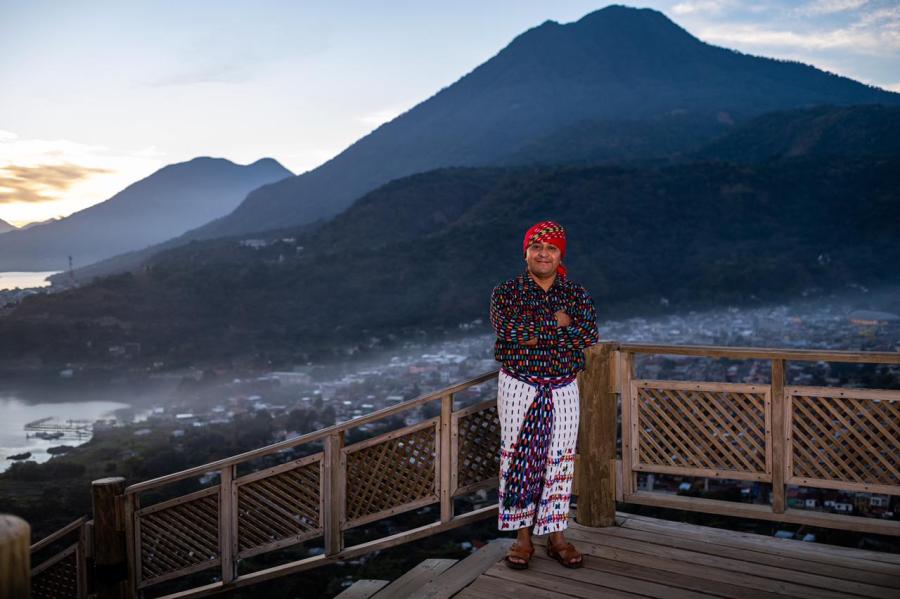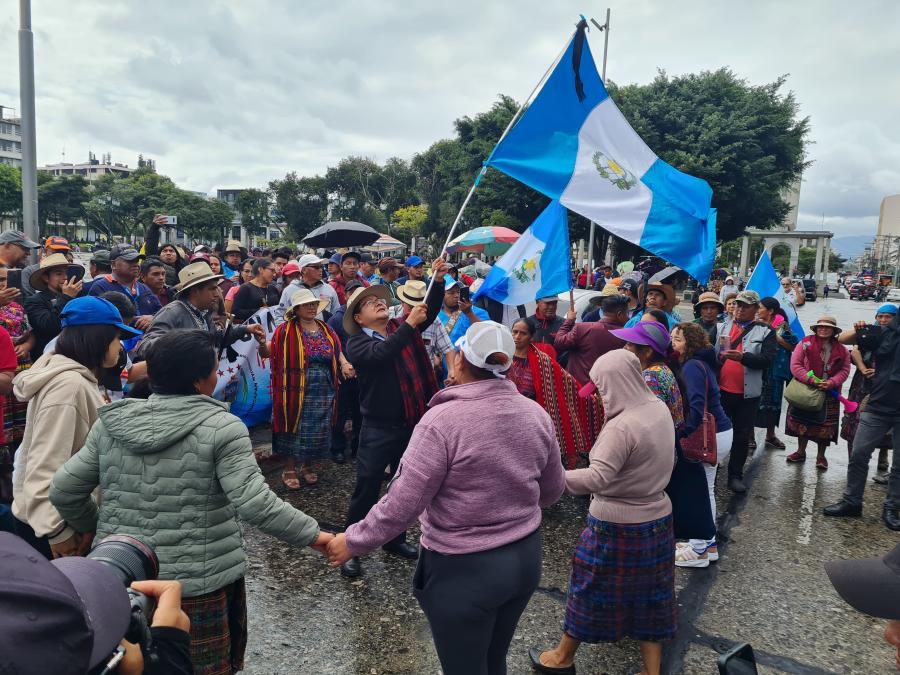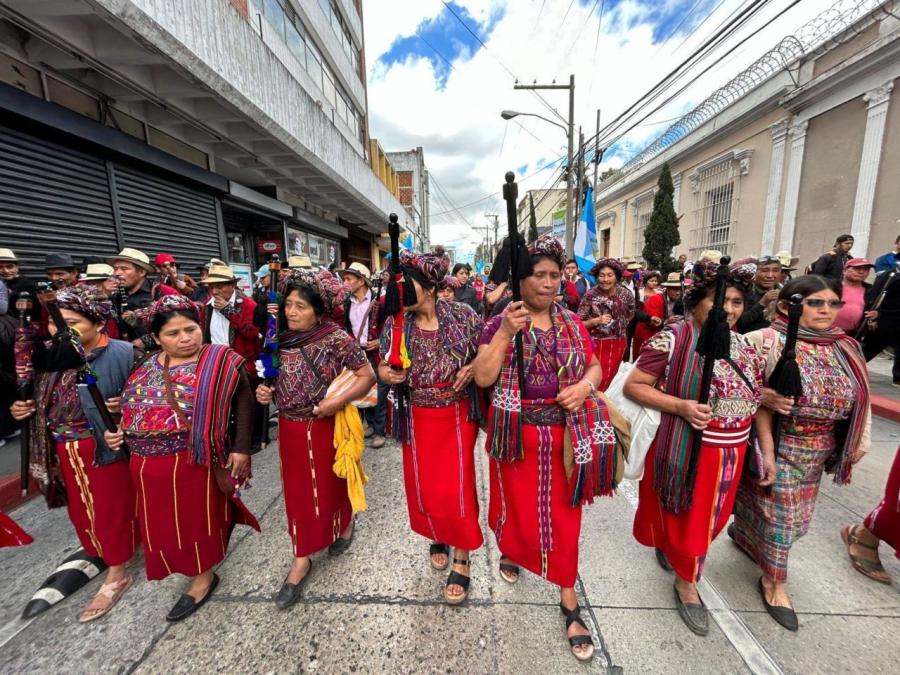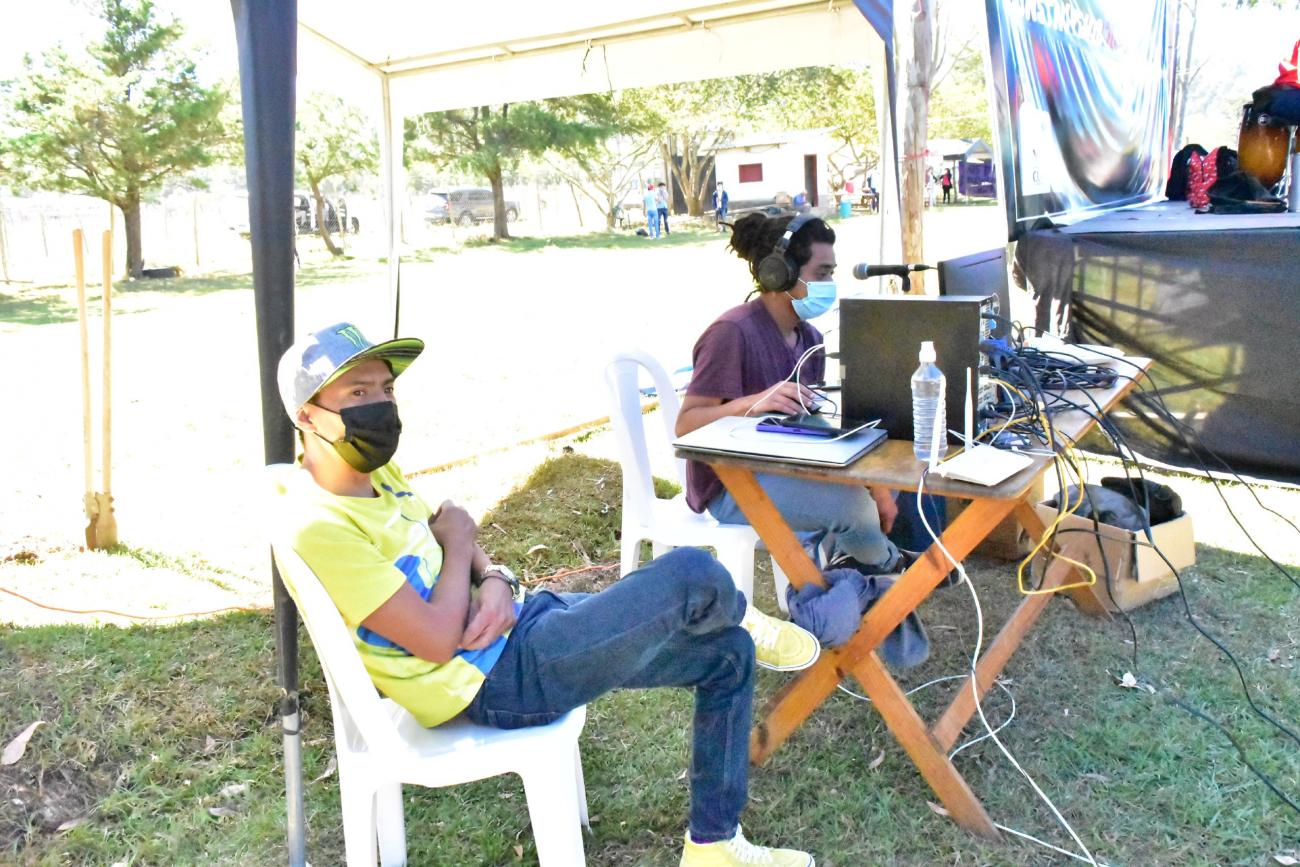
By Red Mesoamericana de Radios Indigenas, Garifunas y Feministas
In Guatemala and Honduras, the commercial media wall prevents communities from fully exercising their right to information and freedom of expression. Despite advances in recent years, the technological gap continues to separate rural from urban environments. Faced with this situation, community media is an important tool to inform and organize communities, to create and disseminate information on the defense of their human and collective rights.
Despite the growing criminalization and persecution of Indigenous, Garifuna, and feminist community resistance and alternative media through State institutions, community media continues to grow and on a daily basis counteracts misinformation of commercial media, breaking the media wall.
The Mesoamerican Network of Community, Indigenous, Garífuna and Feminist Radio Stations is a strategic network of organic alliances, which brings together various community radios and organizations born to strengthen the struggles of social organizations and the peoples to which they belong. The member organizations and radio stations are defined as "community media that disseminate, contribute and promote social and cultural awareness, guiding and educating our peoples, and breaking the media fence that keeps our peoples uninformed." The main methodology of the Mesoamerican Network is popular education, an inclusive practice that promotes the exchange of knowledge, respecting the ancestral knowledge and knowledge of Indigenous and peasant communities, integrating them with the new possibilities provided by technological advances and with critical reflection on the current context of globalization.
Comunicadores y Comunicadoras Populares Por la Autonomía (COMPPA) is an organization that accompanies Indigenous and civic organizations in capacity building, training, and technical support in exercising their rights to communication. COMPPA has accompanied the founding and strengthening of the Mesoamerican Network since its creation with training in community communication.
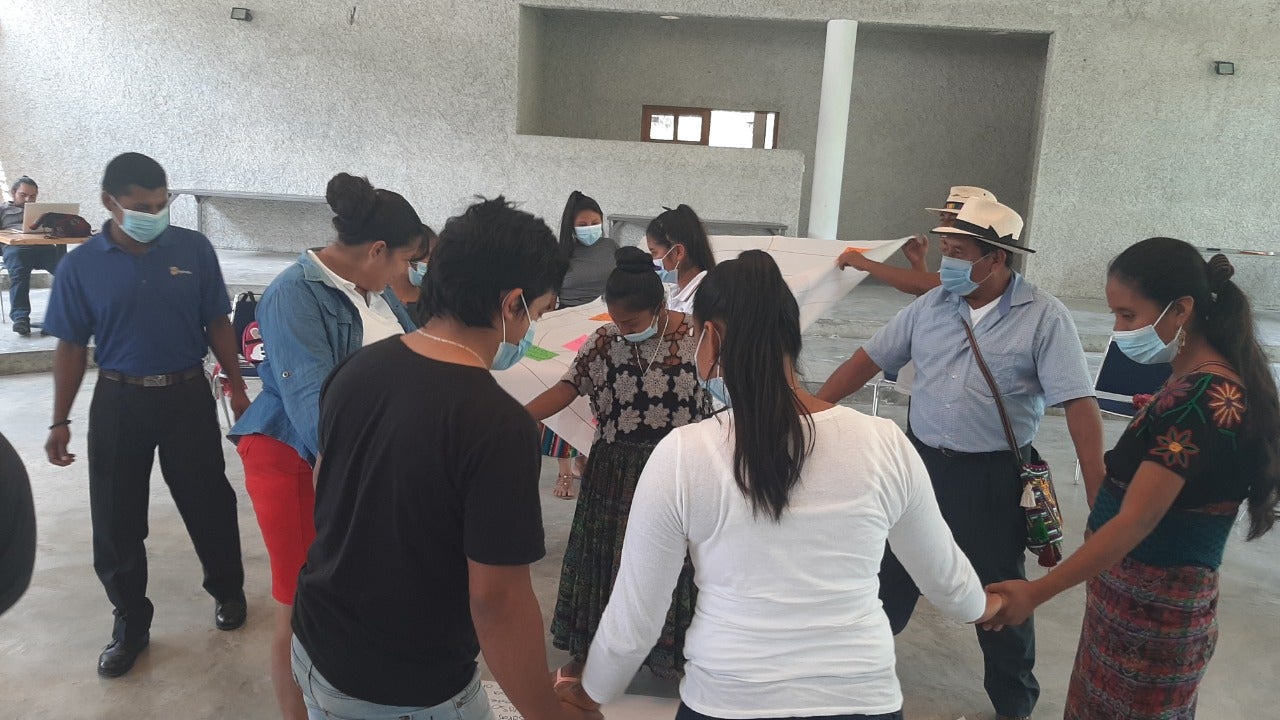
In previous years, organizations that are part of the Mesoamerican Network analyzed possible actions to break down the restrictive media wall and to generate more information from the communities themselves. In 2020, based on analysis and collective dialogue, the Mesoamerican Network and COMPPA decided to start a network of community correspondents by training people to be communication links to and from their communities and by strengthening the structure and effective coordination to improve the exchange of information. This initiative is coordinated by several radio stations and organizations in Guatemala, Honduras, and Mexico and is supported by the Cultural Survival’s Indigenous Community Media Fund.
The project entitled "Solidarity Communication and Communication without Borders" is building the network of community correspondents selected by the same organizations and radios to support their communities. The project also includes the installation of equipment in three local media centers, a production booth, additions to the Mesoamerican Network’s website of an audio library of productions, and the launch of a new collective online radio station which is sourcing programs from stations in the Mesoamerican Network. In addition, the project includes national meetings in Guatemala and Honduras to strengthen the work in the region. The Peoples who will benefit include Q'eqchi ', K’iche ’, Ixil, Mam and Poqomchi’ Peoples in Guatemala, and Garífuna and Lenca Peoples in Honduras. The majority are rural communities that have organized to exercise their right to communicate. Sixty-nine communicators from 17 radio stations belonging to 9 organizations are directly benefiting, in addition to 20 communicators from partner organizations.
In the case of the training of community correspondents, the process for 24 Lenca women and 17 men, and Maya people in Guatemala and Honduras began during the COVID-19 pandemic facing many challenges. First, the facilitators had to adapt to online modalities and digital tools after many years of experience in face-to-face facilitation. Internet connectivity is a major obstacle in rural communities where the community reporters and the lack of adequate computer equipment to receive trainings excluded many of the participants at first. The Council of Popular and Indigenous Organizations of Honduras (COPINH), a grassroots organization with a long history in the protection of Mother Earth and water in Honduras and a member of the Mesoamerican Network, analyzed these new challenges and presented a new proposal to recover radio as a training and education medium for participants, instead of using the internet.
Training through radio had been used in past decades as educational tools for rural communities by programs such as the Guatemalan Institute of Radio Education (IGER). Many participants of the radio trainings indicated that they value the process as it opened opportunities to more participants than originally expected. The trainings were combined with hands-on activities in the field and interviews with people about issues of local relevance.
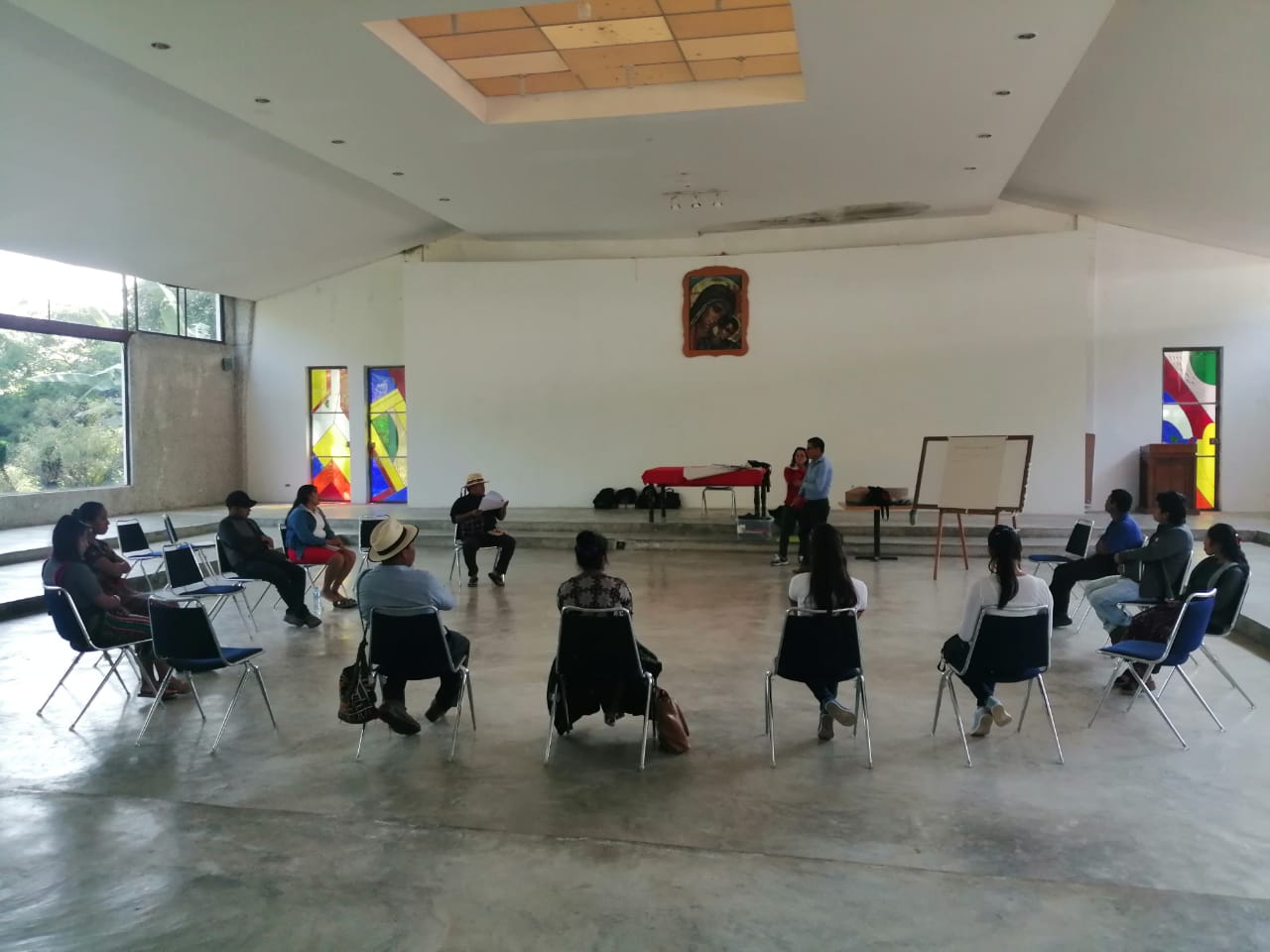
According to María Lopez, facilitator of the training in Honduras, correspondent training expanded participants’ knowledge to regular listeners of the COPINH community radio stations. It strengthened the radio monitoring and correspondents network. For example, compañeras from the community of Roruca denounced on the radio illegal canteens in their community and sexual abuse by some residents in the area, making radio be a space for reporting as well as serving as a mediator on these issues.
With these activities of the Mesoamerican Network, it is expected that the collection and dissemination of information from and for the communities in marginalized areas will continue to increase, strengthening mutual support and solidarity between radio stations and organizations.
More diverse, participatory, and inclusive democratic participation and true community media will increase the advocacy capacity of organizations and aid in the defense of Indigenous rights, cultures, and territories, towards true social change.
Read more about the training programs for Honduran community correspondents on the website of the Mesoamerican Network:
https://www.radioscomunitarias.info/corresponsales-comunitarios-redmeso-honduras/
https://www.radioscomunitarias.info/red-de-corresponsales-comunitarios-guatemala/
https://www.radioscomunitarias.info/copinh-escuelita-radial-justicia-para-berta-mujeres-hablando/
The Mesoamerican Network of Community, Indigenous, Garifuna, and Feminist Radios received a grant from Cultural Survival’s Indigenous Community Media Fund in 2020. The Indigenous Community Media Fund provides opportunities for international Indigenous radio stations to strengthen their broadcast infrastructure and systems and creates training opportunities in journalism, broadcasting, audio editing, technical skills, and more to Indigenous community radio journalists around the world. In 2020, the Indigenous Community Media Fund supported 35 media projects in 8 countries, totaling $214,000.
